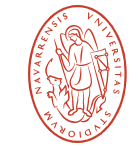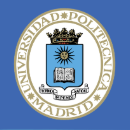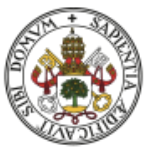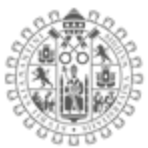Introduction
Barcelona Graduate School of Economics (BSE) is a higher education institution focusing on economics education and research. It aims to cultivate top economics talents with an international perspective and has a high reputation in education and research in the field of economics.
Overview
Student size: A certain number of master's and doctoral students are enrolled each year. The student size is relatively small, but the selection criteria are strict and the student quality is high. These students come from all over the world and present a diverse background.
Campus distribution: Located in Barcelona, Spain, an important economic and cultural center in southern Europe, the city's economic vitality and cultural heritage provide a good external environment for the school. The specific location of the campus is closely based on the Pompeu Fabra University of Barcelona (UPF), sharing some teaching resources and facilities.
History and establishment time
The Barcelona School of Economics was founded in 2004 by the Pompeu Fabra University of Barcelona (UPF), the Catalan Institute for Research and Advanced Studies (ICREA) and the Autonomous University of Barcelona (UAB). Its establishment aims to integrate resources from all parties, enhance the international status of Catalonia in the field of economics education and research, and create a top economics education and research center in Europe.
School Strength
Discipline: Provide high-quality master's and doctoral degree programs, mainly in the field of economics, including professional programs such as MSc in Economics, MSc in Financial Economics, and PhD in Economics. These courses focus on combining theory with practice to cultivate students' professional capabilities in economic analysis, policy making, and finance.
Teaching Mode: Adopting an international teaching mode, the courses are mainly taught in English, attracting outstanding students and teachers from all over the world. Teaching focuses on interactive learning, case analysis and research projects, encouraging students to actively participate in classroom discussions and academic research, and cultivating students' critical thinking and ability to solve practical problems.
Faculty: It has a group of world-renowned economists and researchers as the teaching team. Many of these professors have published many important papers in top international academic journals and have profound academic attainments in macroeconomics, microeconomics, econometrics, financial economics and other fields. They not only impart professional knowledge, but also guide students to participate in cutting-edge research projects.
International cooperation: We have established extensive cooperative relations with many top universities and research institutions around the world, such as the Massachusetts Institute of Technology (MIT) and Harvard University in the United States to carry out academic exchanges and cooperative research projects. Through these cooperations, students have the opportunity to participate in international joint research, academic visits and exchange activities, broaden their international horizons and enhance their international competitiveness.
Nature of the institution
The Barcelona School of Economics is a public-private academic institution. This unique nature enables it to integrate public resources and private funds to provide sufficient support for education and research.
Educational philosophy
Emphasis on cultivating economic talents with solid theoretical foundation, innovative thinking and international vision. Focus on the combination of academic research and practical application, encourage students to pay attention to real economic problems, and use the theoretical knowledge they have learned for in-depth analysis and solution. Committed to creating an open, diverse and inclusive academic environment to promote the collision of ideas and academic exchanges between students and teachers from different cultural backgrounds.
Key laboratories and disciplines
Key laboratories: Although it does not have large-scale physical laboratories like traditional comprehensive universities, the school has established a number of research centers and laboratories, such as the Barcelona Economic Institute (IEB), which are equipped with advanced data analysis and research tools, providing strong support for teachers and students to carry out economic research.
Key disciplines: With economics as the core, the school has significant advantages in macroeconomics, microeconomics, econometrics, financial economics and other fields. The school's research results have a high influence in the international academic community and are at the forefront of economic policy analysis and financial market research.
Department
Due to its focus on the field of economics, the school does not set up multiple departments like traditional universities, but has built a complete teaching and research system around the discipline of economics, covering the curriculum, research projects and academic guidance at the master's and doctoral levels.
Ranking
It has performed well in professional rankings in the field of economics and often ranks among the top in the rankings of economics education and research institutions in Europe and even the world. For example, in some rankings of economics majors, its master's program is rated as one of the top economics master's programs in Europe and enjoys a high reputation internationally.
Cost
The tuition fee for master's programs is relatively high, generally around 20,000 to 30,000 euros per year, and the specific fees vary slightly depending on the major and course settings. The tuition fee for doctoral programs is relatively low, and some students may also receive scholarships or research grants to support their studies and research.
Campus Environment
Campus Facilities: Relying on the campus facilities of Pompeu Fabra University of Barcelona, it has modern teaching buildings, libraries, computer laboratories and other teaching facilities. The library has a rich collection of books, covering various books and academic journals in economics and related fields, providing students with good learning resources. The computer laboratory is equipped with advanced data analysis software and high-performance computers to meet the needs of students for economic research and data analysis.
Campus Culture: The campus culture is full of vitality and innovative spirit, and the international atmosphere is strong. Students come from different countries and regions, and the diverse cultural backgrounds promote the exchange and integration of ideas. The school often holds various academic lectures, seminars and academic conferences, and invites internationally renowned economists and policymakers to exchange ideas at the school, providing students with opportunities to interact with top scholars and creating a strong academic atmosphere. In addition, the art, culture and food of the city of Barcelona also add rich colors to students' campus life.
-

University of Navarra
-

Autonomous University of Madrid
-

Polytechnic University of Catalonia
-

CEU University of San Pablo
-

Technical University of Madrid
-

University of Lleida
-

University of Barcelona
-

University of Oviedo
-

University of Valladolid
-

University of Salamanca
-

Mesoamerican University
-

Istmo University
-

Mariano Galvez University of Guatemala
-

Regional University of Guatemala
-

Galileo University
-

Francisco Marroquín University
-

Rafael Landívar University
-

University of the Valley of Guatemala
-

University of San Carlos of Guatemala
-

Technological Institute of Tlaxcala Plateau
-

Golfo University
-

Technological University of South Sonora
-

Technological University of Huejotzingo
-

Tizimín Institute of Technology
-

Chilpancingo Institute of Technology

